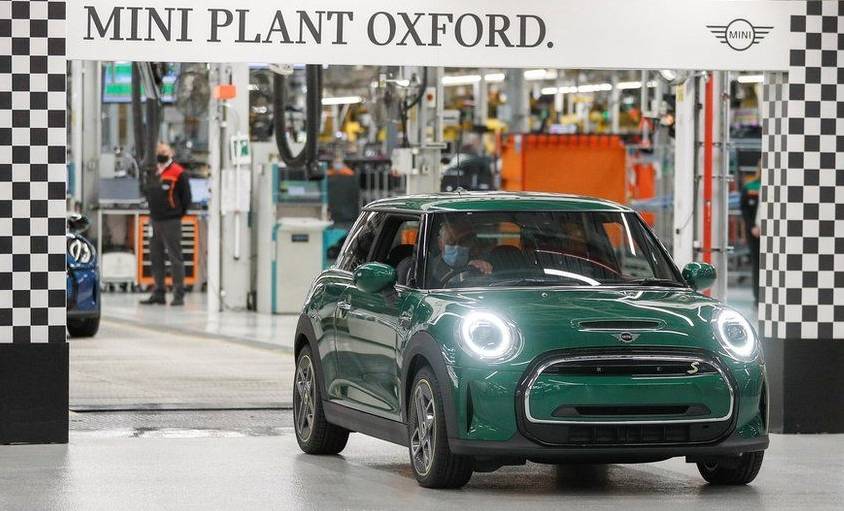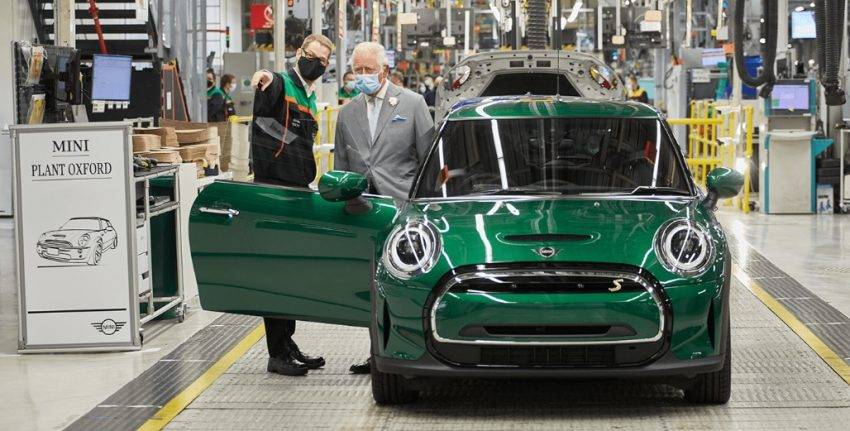BMW is in discussions with the UK government regarding a potential funding package of up to £75 million ($100 million) to secure the production of electric Minis at its Oxford plant. This will require significant modifications to the facility.
According to insiders, a deal between the government and BMW could be reached “within weeks”. The UK Department for Business, Energy and Industry’s Automotive Transformation Fund is said to be providing BMW with a grant of up to £75 million ($100 million). This information aligns with a “FAZ” article from November, which reported BMW’s plans to produce electric cars for the Mini brand in England and convert the Oxford plant for this purpose.
According to sources cited in the autumn of 2022, Mini was planning to completely halt the production of electric cars in England by 2023. It was speculated that BMW might relocate its electric car production to its partner in China, Great Wall. There was no comment from the company’s headquarters, but it is believed that the board of directors has now rethought its strategy due to an expected higher demand for electric cars than the current production capacities in Leipzig and China can handle. Hence, Oxford is seen as an essential location for additional electric car production.
According to “FAZ”, BMW recently produced 40,000 Mini Cooper SE and 140,000 Mini models with internal combustion engines at their Oxford plant. This parallel production was possible because the electric Mini was based on the internal combustion engine model. However, with the transition to a new electric generation, being developed in partnership with Great Wall, the electric model is changing platforms. For a while, parallel production at the 1913 built factory was considered inefficient and too costly due to the necessary investments.

It is unknown what the potential conversion at the BMW-owned plant in Britain could entail. BMW is known for advocating for flexible production, allowing for multiple drive types to be produced on a single line in order to adapt to changing demand throughout the model cycle.
It is unclear what the future of the BMW’s Oxford plant may hold, but the Chief Financial Officer, Nicolai Peter, emphasized during the presentation of the Q3/2022 quarterly figures that Oxford remains the “heart of Mini production.” However, he limited this statement to the current combustion engine production, which, according to information from October, should continue for the three-door, five-door, and convertible models. The plant employs approximately 4,000 people, making it one of the most significant in the UK. Around 80% of the vehicles produced in the plant are exported.
Against this backdrop, retaining Mini electric car production should be a significant factor for the UK government, also with the incentives outlined above. According to data from the Society of Motor Manufacturers and Traders (SMMT), the British automotive industry saw a ten percent decrease in production across all types of vehicles in 2022.
A few days ago, Nissan, another major manufacturer with production in the UK, commented on the situation there. Ashwani Gupta, the company’s Chief Operating Officer, warned in an interview with the BBC that for new electric models to be manufactured in the UK, the “economy needs to work.” In his opinion, Great Britain faces the challenge of remaining competitive with other automotive countries. Gupta stated that UK manufacturing costs are higher than other countries due to higher energy costs and general inflation. Nissan employs over 6,000 people at its Sunderland plant.


